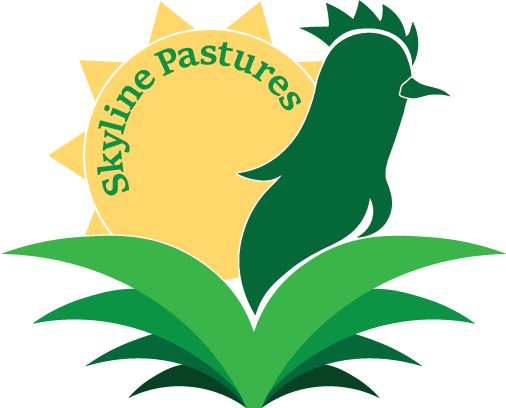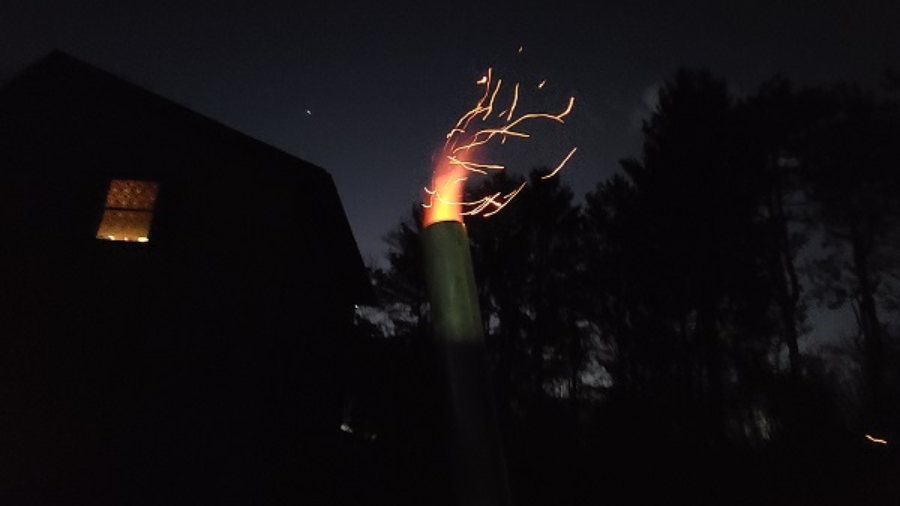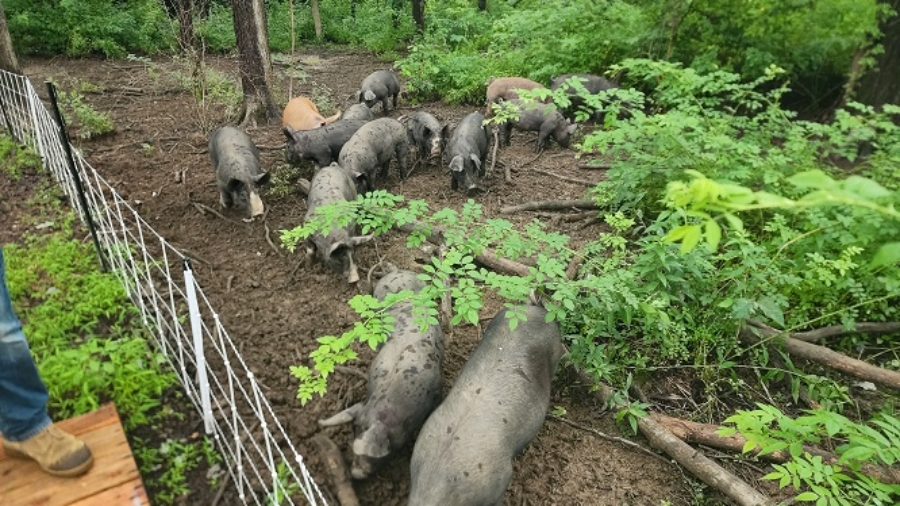Spring is almost here!
On our farm we are constantly improving everything we can regarding care of our animals and care of our land, and one exciting new way we are working to do just that is through the use of biochar. Biochar is simply (or maybe not simply) charcoal that has been allowed to become filled with plant-available nutrition and bacteria. We use a retort we built from recycled materials so that we can heat wood without burning it. This process results in the wood being reduced to pure carbon (charcoal) which we then put through a composting process to allow that carbon to take up all kinds of nutrients for our soil. Once it has been composted, also referred to as inoculated, we will add it to our garden plantings, tree plantings, and areas that will benefit from increased fertility and water retention. We will publish before and after pictures as well as our retort building process so that anyone who wants to replicate our process can. The retort looks like this:
A quick Google or YouTube search will yield many useful and interesting results for making and using biochar. Here is a link that we have found particularly informative: Biochar Resources – The Survival Podcast
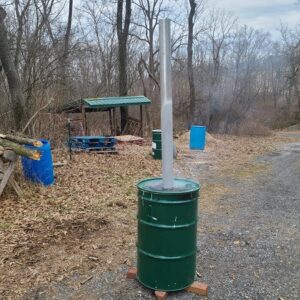
This site has taken the time to consolidate many (more than you likely will need) biochar resources into one easy-to-reference page. One thing to consider is that before you bother improving the soil with biochar (or any other amendments) you would do well to stop any detrimental practices you are using such as tilling, spraying herbicides, pesticides, chemical fertilizers, not gardening, etc. As was stated in a seminar we recently attended; “Get the basics down first, then you can worry about the freaky [stuff]”.
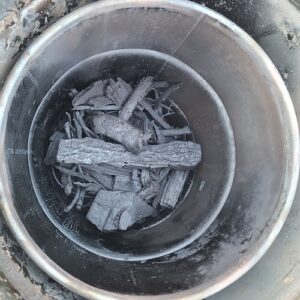
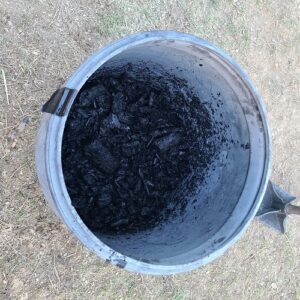
Another exciting piece of news is our farm was selected to conduct a silvopasture research project by Northeast Sustainable Agriculture Research and Education (NE SARE). Our project will consist of developing a system of pig rotation and establishing beneficial plants in our woodlot so that we are not only providing the pigs a more diverse and nutritious diet, but also improving the overall biodiversity and wellness of our woods and soils. We will publish our activities and findings frequently so that other farmers (or would-be farmers) can see what we are doing and replicate it while avoiding any mistakes we have already made. We look forward to showing you our progress as this project takes form!
Thanks for reading and have a great day!
-CJ and Tanya
